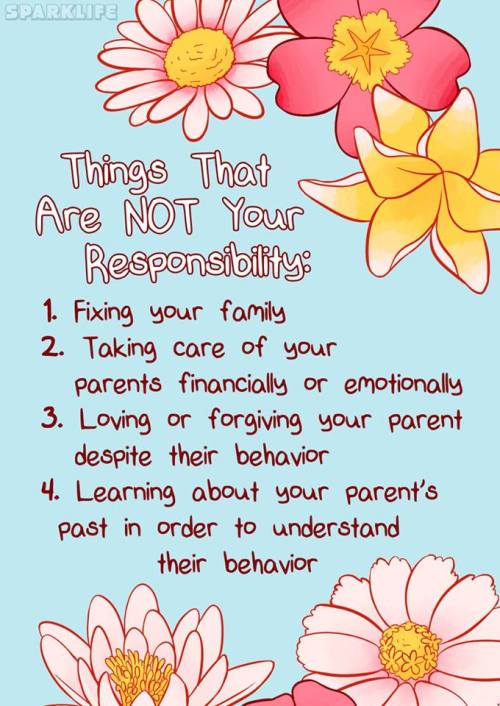— Natalie Díaz, From “american Arithmetic”, Postcolonial Love Poem (via Letsbelonelytogetherr)


— natalie díaz, from “american arithmetic”, postcolonial love poem (via letsbelonelytogetherr)
More Posts from Lottie360 and Others
Shoutout to all the cavemen who gave their lives to find out which plants are poisonous and which you can eat
In that great discourse with the living dead which we call reading, our role is not a passive one. […] We engage the presence, the voice of the book. We allow it entry, though not unguarded, into our inmost. A great poem, a classic novel, press in upon us; they assail and occupy the strong places of our consciousness. They exercise upon our imagination and desires, upon our ambitions and most cover dreams, a strange, bruising mastery. Men who burn books know what they are doing. The artist is the uncontrollable force; no western eye, since Van Gogh, looks on a cypress without observing in it the start of a flame. So, and in supreme measure, it is with literature. A man who has read Book XXIV of the Iliad - the night meeting of Priam and Achielles - or the chapter in which Alyosha Karamazov kneels to the stars, who has raid Montaigne’s chapter XX (Que philosopher c'est apprendre à mourir) and Hamlet’s use of it - and who is not altered, whose apprehension of his own life is unchanged, who does not, in some subtle yet radical manner, look on the room in which he moves, on those that knock at the door, differently - has read only with the blindness of physical sight. […] To read well is to take great risks. It is to make vulernable our identity, our self possession. In the early stages of epilepsy there occurs a characteristic dream (Dostoyevsky tells of it). One is somehow lifted free of one’s own body; looking backbone sees oneself and feels a sudden, maddening fear; another presence is entering one’s own person, and there is no avenue of return. Feeling this fear, the mind gropes to a sharp awakening. So it should be when we take in hand a major work of literature or philosophy, of imagination or doctrine. It may come to possess us so completely that we go, for a spell, in fear of ourselves and in imperfect recognition. He who has read Kafka’s Metamorphosis and can look into his mirror unflinching may technically be able to read print, but is illiterate in the only sense that matters.
George Steiner, “Humane Literacy” from Language and Silence (via mesogeios)
“He who fights with monsters should look to it that he himself does not become a monster. And if you gaze long into an abyss, the abyss also gazes into you.” - Friedrich Nietzsche, Beyond Good and Evil
via @the-book-diaries









Credit: Ashley McMinn
One of my favorite stories about Artemis is that after she required Agamemnon to sacrifice his daughter Iphigenia, she stole her away at the last moment and left a white deer in her place. After that, people disagree on what happened, but I like the story where Artemis transforms her into Hecate, because can you imagine them in the modern era?
Artemis, protector of young women and goddess of the hunt turned vigilante, hunting down the ones who attack girls in dark alleys, the ones with beer-hard hands and no sense of decency even if they’d been sober anyway.
But when Artemis finds the girls, she takes them to Hecate–Hecate, who was mortal once, led like a lamb to an altar by a man who was supposed to protect her. And sure, Artemis is the one who makes them pay, who delights in their screams and dances in the moonlight once she knows those men will be scared of the dark forever, spend their entire lives looking over their shoulders fearing her.
But Hecate… Hecate is good with herbs and potions and she understands the nightmares, the heart-pounding, sweaty hands panic that wakes them up screaming in the middle of the night, and she makes them herbal draughts to help them sleep, because unlike Artemis, Hecate understands. She isn’t vengeful, an angry older sister out for blood like Artemis. She’s the best friend, the mother, and the sister rolled all into one.
So Artemis avenges them and Hecate cares for them and the moon-goddess Selene shines her absolute brightest for them, fills every shadow with bright silver so they don’t need to be afraid of the dark anymore, and the three goddesses call these their Lost Girls, and at first Apollo was sort of skeptical but there’s no stopping Artemis when she sets her mind on something, and before Apollo quite realizes it, he’s running beside his sister, chasing a boy who couldn’t keep his hands to himself, and he’s never felt more right.




mood

via weheartit
as she walks dead lilies bloom underneath her feet. The closest the underworld had to life
my late night thoughts on Persephone

The excavation of the ancient city of Ur led by archeologist C. Leonard Woolley in Tell al-Muqayyar, Iraq, 1934 [859x611]

“This is a city of shifting light, of changing skies, of sudden vistas. A city so beautiful it breaks the heart again and again.” -Alexander McCall Smith
-
 dboranb liked this · 3 weeks ago
dboranb liked this · 3 weeks ago -
 pearly-sadness liked this · 3 weeks ago
pearly-sadness liked this · 3 weeks ago -
 bandznerd reblogged this · 3 weeks ago
bandznerd reblogged this · 3 weeks ago -
 writermusesstuff liked this · 3 weeks ago
writermusesstuff liked this · 3 weeks ago -
 orion-the-starspinner reblogged this · 3 weeks ago
orion-the-starspinner reblogged this · 3 weeks ago -
 taysalchemy liked this · 3 weeks ago
taysalchemy liked this · 3 weeks ago -
 levellinlows reblogged this · 3 weeks ago
levellinlows reblogged this · 3 weeks ago -
 freakonaleashgurl5 liked this · 3 weeks ago
freakonaleashgurl5 liked this · 3 weeks ago -
 nolabird liked this · 3 weeks ago
nolabird liked this · 3 weeks ago -
 heehoee liked this · 3 weeks ago
heehoee liked this · 3 weeks ago -
 wh4tsaheart reblogged this · 3 weeks ago
wh4tsaheart reblogged this · 3 weeks ago -
 neon-dank liked this · 3 weeks ago
neon-dank liked this · 3 weeks ago -
 stupiddumpster468 liked this · 3 weeks ago
stupiddumpster468 liked this · 3 weeks ago -
 theyreonlychasingsafety reblogged this · 3 weeks ago
theyreonlychasingsafety reblogged this · 3 weeks ago -
 theyreonlychasingsafety liked this · 3 weeks ago
theyreonlychasingsafety liked this · 3 weeks ago -
 mari-morgana liked this · 3 weeks ago
mari-morgana liked this · 3 weeks ago -
 skysv1ew reblogged this · 3 weeks ago
skysv1ew reblogged this · 3 weeks ago -
 xxcaptainfantasticxx reblogged this · 3 weeks ago
xxcaptainfantasticxx reblogged this · 3 weeks ago -
 aftertasteoftheheart liked this · 3 weeks ago
aftertasteoftheheart liked this · 3 weeks ago -
 poeticallyordinary reblogged this · 3 weeks ago
poeticallyordinary reblogged this · 3 weeks ago -
 zombieejuice liked this · 3 weeks ago
zombieejuice liked this · 3 weeks ago -
 grotesck-psyche liked this · 3 weeks ago
grotesck-psyche liked this · 3 weeks ago -
 princesskristle liked this · 3 weeks ago
princesskristle liked this · 3 weeks ago -
 ctrlaltselenaaa liked this · 3 weeks ago
ctrlaltselenaaa liked this · 3 weeks ago -
 ennawrite liked this · 3 weeks ago
ennawrite liked this · 3 weeks ago -
 imfvlling reblogged this · 3 weeks ago
imfvlling reblogged this · 3 weeks ago -
 surenseer reblogged this · 3 weeks ago
surenseer reblogged this · 3 weeks ago -
 surenseer liked this · 3 weeks ago
surenseer liked this · 3 weeks ago -
 fatbabygirl liked this · 3 weeks ago
fatbabygirl liked this · 3 weeks ago -
 maplexleaf liked this · 3 weeks ago
maplexleaf liked this · 3 weeks ago -
 lets-drown-in-ink-and-alcohol reblogged this · 3 weeks ago
lets-drown-in-ink-and-alcohol reblogged this · 3 weeks ago -
 lets-drown-in-ink-and-alcohol liked this · 3 weeks ago
lets-drown-in-ink-and-alcohol liked this · 3 weeks ago -
 cuntlamb liked this · 3 weeks ago
cuntlamb liked this · 3 weeks ago -
 northerious liked this · 3 weeks ago
northerious liked this · 3 weeks ago -
 faithful-freak liked this · 3 weeks ago
faithful-freak liked this · 3 weeks ago -
 1rogerwillco reblogged this · 3 weeks ago
1rogerwillco reblogged this · 3 weeks ago -
 1rogerwillco liked this · 3 weeks ago
1rogerwillco liked this · 3 weeks ago -
 bekindskinnylove reblogged this · 3 weeks ago
bekindskinnylove reblogged this · 3 weeks ago -
 gayzfordayz liked this · 3 weeks ago
gayzfordayz liked this · 3 weeks ago -
 111princess111 reblogged this · 3 weeks ago
111princess111 reblogged this · 3 weeks ago -
 luciexrs liked this · 3 weeks ago
luciexrs liked this · 3 weeks ago -
 aleki-lives-here liked this · 3 weeks ago
aleki-lives-here liked this · 3 weeks ago -
 casswoo liked this · 3 weeks ago
casswoo liked this · 3 weeks ago -
 captainjtink liked this · 3 weeks ago
captainjtink liked this · 3 weeks ago -
 the-art-of-wearing-a-body reblogged this · 3 weeks ago
the-art-of-wearing-a-body reblogged this · 3 weeks ago -
 noniez liked this · 3 weeks ago
noniez liked this · 3 weeks ago -
 atlantisthorn reblogged this · 3 weeks ago
atlantisthorn reblogged this · 3 weeks ago